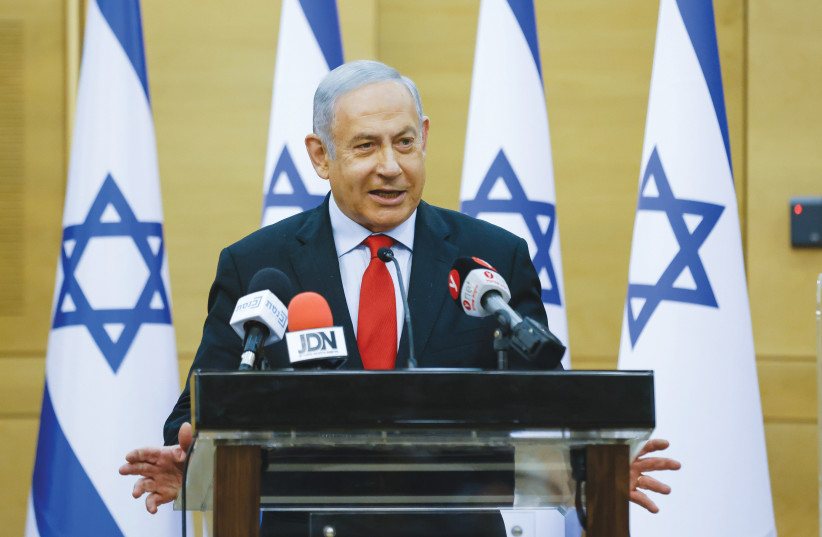The public corruption trial of former prime minister Benjamin Netanyahu in the Jerusalem District Court continued on Tuesday with the defense honing in on inconsistencies in the testimony of limousine driver Yonatan Hasson in Case 1000, the Illegal Gifts Affair.
Hasson testified on behalf of the prosecution on Monday and is expected to be cross-examined for one additional day on Wednesday.
The driver worked for tycoon Arnon Milchin and handled many of the deliveries of expensive cigars and champagne from Milchin and another tycoon, James Packer, to the Netanyahu family.
According to the prosecution, Netanyahu’s acceptance of these expensive gifts was a breach of public trust. Some of the prosecution team had even wanted a bribery charge, especially because Netanyahu at least tried to assist Milchin in various business pursuits.
For his part, Netanyahu denies criminal wrongdoing and has said the gifts were given out of friendship.

What is the criminal wrongdoing that Netanyahu is denying?
From 2011-2016, Netanyahu allegedly received from billionaire Milchin NIS 267,254 worth of cigars, and Sara Netanyahu allegedly received NIS 184,448 worth of champagne.
The Netanyahu family also allegedly received another NIS 229,174 in champagne and cigars from Milchin associate, billionaire Packer, between 2014 and 2016.
On Monday, Hasson testified that a $45,000 item of jewelry was bought for Sara. This item is more expensive than the total of jewelry items in the original charges.
Netanyahu defense lawyer Amit Hadad confronted Hasson about why neither he nor Milchin top aide Hadas Kline never mentioned the expensive jewelry to police in any of their interrogations. However, both of them suddenly seemed to remember it years later mid-trial.
When Hasson tried to brush it off as one detail of many he had been asked about, Hadad showed that the police had asked very explicitly about jewelry and that he had said nothing about the $45,000 item.
Hadad then accused Hasson and Kline of illegally coordinating the addition to their story to artificially beef up the prosecution’s case.
Hasson angrily rejected this accusation, saying he was not an “idiot” who would break the law to discuss the case with Kline.
In another exchange, Hadad showed that Hasson testified in court that he made 10-12 trips delivering items with Packer, but that he had told the police years ago only about two trips.
Hasson said the police made a typographical error in recording what he said. However, Hadad reminded Hasson that he had signed the transcript as being correct.
Next, Hasson said he had caught many errors by the police and tried to correct as many as possible before signing, but that clearly he had not caught all of the errors.
The prosecution and the defense also had an extended debate about whether to rely on Netanyahu’s security team’s recording of who entered and exited his residences to determine when Milchin, Packer, Kline and Hasson visited.
The prosecution noted that these records are incomplete as they missed key visits by Yediot Aharonot owner Arnon (“Nuni”) Mozes, which everyone admits occurred and for which their tapes exist containing the content of those visits.
In a spin-off issue, the court rejected Netanyahu’s request not to hold a hearing on the eve of the elections on October 31. The judges implied that there were already too many reasons to delay and that the trial needed to continue.
